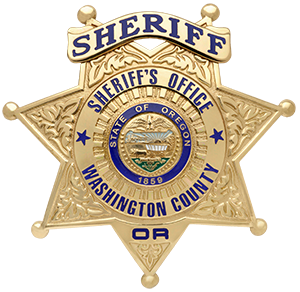
Identity thieves use a variety of means to obtain other people’s personal information, such as birth date, address, driver's license number, or social security number. This information can then be used to fraudulently secure loans, credit cards, checks or merchandise. Washington County Sheriff’s Office maintains a core group of detectives who investigate these crimes every day.
Protect yourself
- Mail Theft– Though mail theft has decreased in Washington County,it does still occur. Using a locked mail box or post office box to mail bills will help protect your information. You may also subscribe for free to the Informed Delivery by USPS(Link is external) program to digitally preview your mail and manage your package deliveries.
- Phishing– Phishing is when a person calls, texts, or emails under the pretense they are from a bank, credit card company or other business. The caller will attempt to get information such as PIN numbers, birth dates, and social security numbers. A legitimate business will not ask for this personal information. If you have doubts about the validity of an information request,contact the business directly before providing any information.
- Skimmers– Skimming captures debit or credit card information by running the magnetic strip through a device similar to card readers used at stores. The skimmer then uses your information to drain the account or make counterfeit credit cards. Protect yourself by keeping your card in sight at all times.
- Compromised Businesses– On occasion,employees or hackers may gain access to customer information and use it for financial gain. Review your credit score regularly and closely monitor your banking information for any unauthorized uses. You can obtain a free credit report(Link is external) every 12 months from each of the three national credit reporting bureaus - Equifax, Experian, and TransUnion.
How to report
Identity theft and fraud must be reported to local law enforcement where the crime occurred.If you live in Washington County or the crime occurred in Washington County call non-emergency dispatch at 503-629 -0111.
If the fraudulent activity took place in multiple locations, such as a stolen credit card used in various cities or states, you may need to file reports with each jurisdiction where the fraud took place.
Other resources
- Request Scam or Fraud prevention training from our Community Outreach team
- Federal Trade Commission Information on Fraud(Link is external)
- Federal Government Site to Report Internet Crimes(Link is external)
- National Do Not Call Registry -- Prevents Solicitors from Calling You(Link is external)
- U.S. Postal Inspectors(Link is external)

